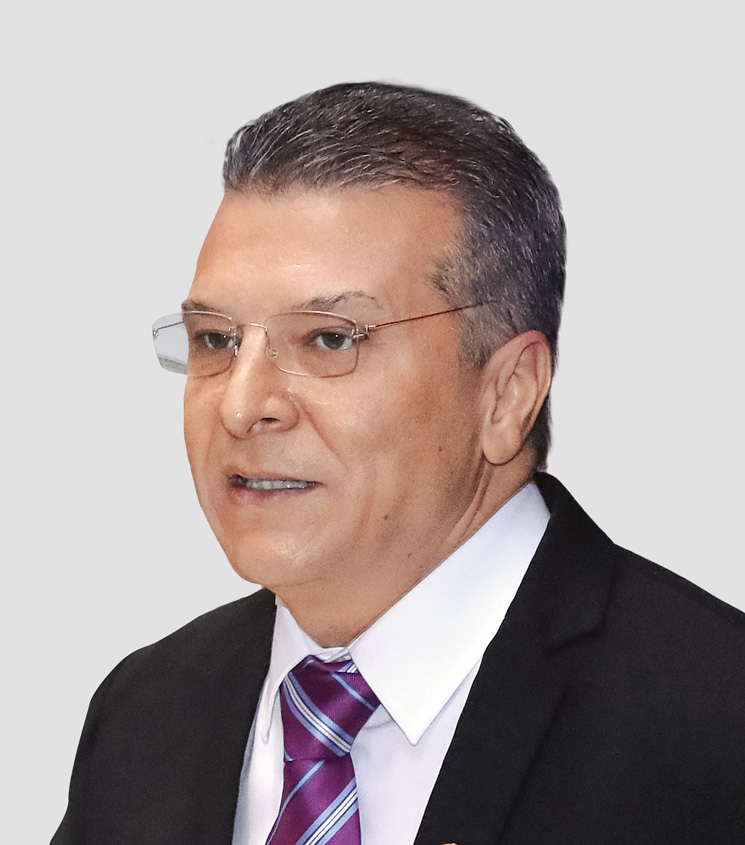Energy Industry Has an ‘Intensive but Productive’ Year Ahead
Q: What were the Energy Commission’s most important achievements in 2021?
The general directors of PEMEX and the Federal Electricity Commission participated in the hearings of the 65th Legislature and saw the beginning of the analysis and informal discussions over the Constitutional Electricity Reform.
Q: Throughout the legislative processes, what was learned from interactions with the private sector?
A: We learned that, unfortunately, in matters as sensitive as energy, interests are broad. Private initiatives and the government have different visions but when there is willingness to listen to one another, bridges can be built that lead to dialog and agreements. The energy sector needs the modifications that can be achieved through the highest legislative level: a constitutional reform.
Q: What can be expected of the commission in 2022, particularly once the postponed electricity reform debate restarts?
A: We extended the period for analysis and discussion because it is a sensitive issue. The reaction has been so broad that we decided not to rush to obtain the final version we will submit for approval. From Jan. 17 to Feb. 15, 2022, there will be a full month of open parliament forums broadcasted live on the Congressional channel and closed-door meetings will be held between generating companies and the Political Coordination Board to reach decisions that address the interests of all players. These modalities will allow legislators, particularly those who are members of these commissions, to join the discussion and possibly reach an agreement during late February or March. But this will depend on the forums.
A: 2021 was an intense and productive year. During the first half of the year, we held the 64th legislative session and moved forward three transcendental reforms. Two of those reforms affected the hydrocarbons industry and the other was the reform for the electric industry. Through the forums of parliament, we listened to the opinions of those in the industry, including users, specialists, society and the government.
A constitutional reform requires the support of two-thirds of the deputies present on the day of the session. If 500 deputies are in attendance, we would need the support of 333 and the coalition formed by members of the Green Party and MORENA represents 279 deputies. We need 57 more. If our proposal does not reassure those deputies, we will not gain their support.
We want the proposal to proceed to benefit all Mexicans. We seek to guarantee access to energy to all Mexicans, which is a human right, and to help the federal economy with lower energy tariffs that help companies be more competitive.
Q: What role should CNH and CRE play, whether or not they are absorbed by SENER?
A: Before CNH and CRE existed, their functions were performed by the central administration, which is also Germany’s model. In France, part of the related faculties are handled by the central administration through a ministry and the other part by citizen consultations. In Spain, which inspired our current model, there are autonomous organisms. All three models work and have their supporters and detractors.
In Mexico, the plan is for these two organizations to return to a central administration but if that point blocks the advancement of the reform, it will likely be reconsidered. Their return to a central administration is controversial and will be thoroughly discussed. If the final decision is to leave them as autonomous organisms, then that will happen.
Q: What role is the commission playing in overseeing the advances in the construction of the Dos Bocas refinery?
A: The Energy Commission contributed by authorizing the yearly budget for that and other refineries. The commission also monitors its progress directly for the Energy Ministry, so we have witnessed the significant advancements it is making. In early 2022, all of the commission’s members will visit the site with members from the ministry to oversee its progress to ensure that its construction is being done well.
Q: How is the commission participating in the purchasing of Deer Park in Texas?
A: We are in close communication with the Energy Ministry and the general director of PEMEX regarding that sale. We have not intervened because the information we have received stated that the authorization to buy the refinery’s remaining stocks is simply a matter of time. We do not see a risk or a reason to intervene.
Q: What is your evaluation of Mexico’s participation in COP26 and the value of what was achieved?
A: These are agreements based on good will and, sadly, most countries that truly influence contamination through the emission of greenhouse gasses continue to fall short. We know that most pollution comes from four countries that direct attention toward other countries that pollute less. Mexico is taking the issue seriously. The Constitutional Electricity Reform proposes that the energy transition be raised to the constitutional level, the most important law in the country.
Q: What role will the commission have in CFE’s entrance to the renewable energy market?
A: In the energy transition, all growth has to be achieved through transitional combustibles, such as natural gas, or renewable energies. The investment of US$1.6 billion in Puerto Peñasco contributed to Mexico having the most important solar power plant in Latin America and the seventh globally. The investment shows our commitment to integrate more renewable energy sources.
Puerto Peñasco also needs supportive energy because solar energy is intermittent. Lithium could help in this regard. The reform also wants to capitalize on this resource. This facility is a great accomplishment for the country.
Q: What can be expected of the commission in 2022?
A: Our forums and consultations guarantee that all parties are heard, leading to a constitutional reform that benefits everyone and grants citizens access to reliable and economical energy. We will continue working on the electricity issue throughout the year. Regarding hydrocarbons, we will accompany PEMEX as it works to increase oil production and strengthen the country’s energy security through the local refining of diesel and other products.
Manuel Rodríguez is a lawyer and elected Deputy from the state of Tabasco, having worked on all three levels of the government for over 30 years and founding MORENA’s local arm in Tabasco. He was reelected by plurality vote in 2018 as one of MORENA’s federal deputies from Tabasco and elected for the second time as President of the Energy Commission of the Chamber of Deputies.
 Fianzas y Seguros CRYA
Fianzas y Seguros CRYA

